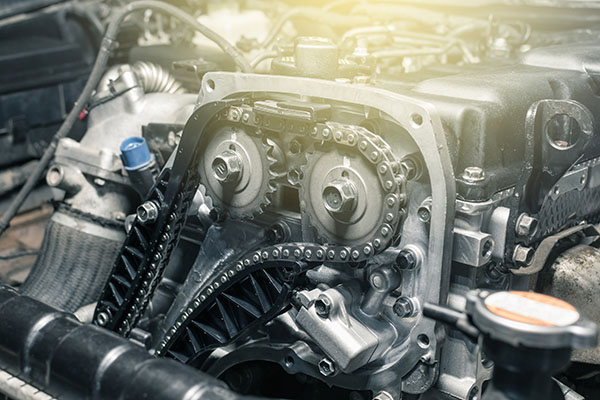
When it comes to keeping your engine running in perfect harmony, the timing belt and timing chain play pivotal roles. These components might seem small, but their function is mighty, ensuring that the engine's valves open and close at precisely the right time.
Understanding the Basics
Before we pit these two against each other, it's essential to understand what they are and how they function.
A timing belt is a toothed belt made of rubber and other materials, while a timing chain is, as the name suggests, a chain.
Both connect the crankshaft to the camshaft(s) and ensure the synchrony between the valves' opening and closing and the pistons' movement.
The Lifespan Debate
One of the most significant differences between a timing belt and a timing chain is their lifespan. Timing chains are designed to last the lifetime of the vehicle, thanks to their durable metal construction. On the other hand, timing belts, while cheaper, need to be replaced at specific intervals, typically between 60,000 to 100,000 miles. This difference alone can be a deciding factor for many drivers.
Cost Considerations
Initially, a timing belt might seem like the more cost-effective option, and it often is, upfront. However, considering the need for periodic replacement, including the labor to do so, the costs can add up over the life of your vehicle. In contrast, while a timing chain might come with a higher initial cost, its longevity often means less frequent replacements, potentially offering savings in the long run.
Performance and Noise
Performance-wise, there's not a huge difference between the two, as both are capable of keeping your engine ticking over smoothly. However, timing chains are generally noisier than timing belts, which operate almost silently. If your ride's acoustics are a priority, this could influence your preference.
Maintenance and Upkeep
While timing chains may not require regular replacement, they are not maintenance-free. They rely on proper lubrication to function correctly, and over time, the tensioners and guides that keep the chain on track can wear out. Regular oil changes are critical to keeping a timing chain in good condition, as old or dirty oil can accelerate wear.
Which Is Better?
As with many things in the automotive world, the answer isn't straightforward. The choice between a timing belt and a timing chain depends on your priorities, whether they be cost, maintenance, longevity, or noise levels. Each has its advantages and disadvantages, making them better suited to different drivers' needs.
Future Trends in Engine Timing
As automotive technology evolves, so do the components that keep our engines running. Manufacturers continuously seek ways to improve efficiency and reliability, which could see further innovations in timing mechanisms. Whether future designs lean more towards belts, chains, or entirely new systems remains an exciting prospect.
For expert vehicle maintenance and repairs in West Babylon and the surrounding area, contact Cosmo's Service Center!